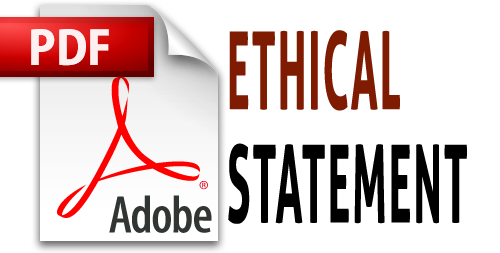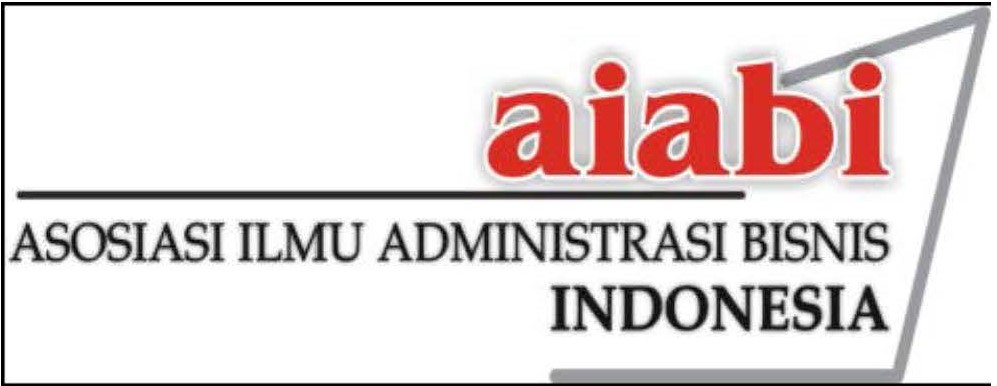KOLABORASI GOVERNANSI DALAM PROGRAM UMKM JUARA SEBAGAI UPAYA PENINGKATAN KOMPETENSI PELAKU USAHA JAWA BARAT
Abstrak
The purpose of this study was to analyze how the collaboration of stakeholders in supporting the increase in the class of Micro, Small and Medium Enterprises (MSMEs) in West Java Province through the MSME Champion program. The approach used in this study is a qualitative approach with a descriptive method, this is because the researcher will describe it systematically and factually by doing a holistic deepening of the UMKM Juara program which is reviewed using a collaborative governance perspective. Data from the research conducted using in-depth interview techniques and literature study, which were then analyzed using analytical techniques which included data reduction, presentation and drawing conclusions. The results of the research shows that there is still non-optimal collaboration between stakeholders caused by the difficulty of unifying perceptions in the principled engagement stage. The conclusions obtained are that all principles have not been unified and the distribution of capabilities between existing stakeholders has not been evenly distributed, thus hampering the implementation of collaborative actions. This is due to the absence of optimization of monitoring carried out so that performance is carried out.
Tujuan penelitian ini adalah untuk menganalisis bagaimana kolaborasi pemangku kepentingan dalam mendukung kenaikan kelas Usaha Mikro Kecil dan Menengah (UMKM) di Provinsi Jawa Barat melalui program UMKM Juara. Pendekatan yang digunakan dalam penelitian ini adalah pendekatan kualitatif dengan metode deskriptif, hal ini dikarenakan peneliti akan menggambarkan secara sistematis dan faktual dengan melakukan pendalaman secara holistik terkait program UMKM Juara yang ditinjau menggunakan perspektif collaborative governance. Data dari penelitian yang dilakukan menggunakan teknik wawancara mendalam dan studi pustaka, yang kemudian dianalisis dengan menggunakan teknik analisis yang meliputi reduksi data, penyajian dan penarikan kesimpulan. Hasil penelitian yang dilakukan, ditemukan bahwa masih terdapat ketidakoptimalan kolaborasi antara pemangku kepentingan yang disebabkan oleh sulitnya penyatuan persepsi dalam tahap principled engagement. Adapun kesimpulan yang diperoleh adalah belum bersatunya seluruh prinsip-prinsip dan tidak meratanya pendistribusian kapabilitas antar para pemangku kepentingan yang ada sehingga menghambat pelaksanaan tindakan dalam kolaborasi. Hal ini disebabkan tidak adanya optimalisasi monitoring yang dilakukan sehingga kinerja yang dilakukan.
Kata Kunci
Teks Lengkap:
PDFReferensi
Amsler, L. B. (2016). Collaborative Governance: Integrating Management, Politics, and Law. Public Administration Review, 76(5), 700–711. https://doi.org/10.1111/puar.12605
Arrozaq, D. L. C. (2016). Collaborative Governance (Studi Tentang Kolaborasi Antar Stakeholders Dalam Pengembangan Kawasan Minapolitan di Kabupaten Sidoarjo.
Bank Indonesia. (2016). UMKM. Bi.Go.Id. https://www.bi.go.id/bisaid
Bianchi, C., Nasi, G., & Rivenbark, W. C. (2021). Implementing collaborative governance: models, experiences, and challenges. Public Management Review, 23(11), 1581–1589. https://doi.org/10.1080/14719037.2021.1878777
BPS. (2020). Survey BPS : Covid-19 Tekan Semua Usaha. Badan Pusat Statistik. https://ekonomi.bisnis.com/read/20200915/12/1291857/survei-bps-covid-19-tekan-semua-sektor-usaha
Chandra, A. I. (2009). Pentingnya Perusahaan Mengelola Hubungan Baik dan Fungsional dengan Pemangku Kepentingan. Administrasi Bisnis, 5, No 2, 171–188.
Dipadirani, L. C. (2020). Pengaruh Penerapan Standar Operasional Prosedur (Sop) Dan Sistem Penggajian Terhadap Kinerja Karyawan Pada Top Ten Group Surabaya Divisi Logistik Dan Produksi. Fakultas Ekonomi Dan Bisnis.
Diskuk Jabar. (2020). Gerakan UMKM Naik Kelas, Perkokoh Pondasi Ekonomi Nasional. Diskuk.Jabarprov.Go.Id. http://diskuk.jabarprov.go.id/2020/01/23/gerakan-umkm-naik-kelas-perkokoh-pondasi-ekonomi-nasional/
Emerson, K., & Gerlak, A. K. (2014). Adaptation in Collaborative Governance Regimes. Environmental Management, 54(4), 768–781. https://doi.org/10.1007/s00267-014-0334-7
Emerson, K., & Nabatchi, T. (2018). Collaborative Governance Regimes. In A. B. Radin (Ed.), Georgetown University Press. Georgetown University Press.
Florini, A., & Pauli, M. (2018). Collaborative governance for the Sustainable Development Goals. Asia and the Pacific Policy Studies, 5(3), 583–598. https://doi.org/10.1002/app5.252
Fung, A. (2015). Putting the Public Back into Governance: The Challenges of Citizen Participation and Its Future. Public Administration Review, 75(4), 513–522. https://doi.org/10.1111/puar.12361
Geiyono, S., Muhammad, A. S., & Yudiatmaja, W. E. (2018). Kolaborasi Dalam Pengelolaan Zakat, Infak Dan Sedekah Di Kota Tanjungpinang. ILmu Administrasi Negara (JUAN), 6.
Imperial, M. T., Johnston, E., Pruett-Jones, M., Leong, K., & Thomsen, J. (2016). Sustaining the useful life of network governance: Life cycles and developmental challenges. In Frontiers in Ecology and the Environment (Vol. 14, Issue 3, pp. 135–144). Wiley Blackwell. https://doi.org/10.1002/fee.1249
Islamy, L. O. S. (2018). Collaborative Governance: Konsep dan Aplikasi. Deeppublish.
Kementrian Kesehatan RI. (2021). Situasi Terkini Perkembangan Coronavirus Desease (Covid-19) 30 Juli 2021. Infeksi Emerging. https://infeksiemerging.kemkes.go.id/document/situasi-terkini-perkembangan-coronavirus-disease-covid-19-30-juli-2021/view
Kern, M. A., & Smutko, L. S. (2021). Collaborative governance: The role of university centers, institutes, and programs. Conflict Resolution Quarterly, 39(1), 29–50. https://doi.org/10.1002/crq.21314
Miles, M. B., Huberman, A. M., & Saldana, J. (2019). Qualitative Data Analysis: A Methods Sourcebook (Fourth Edition). SAGE Publications.
Muhammad, R. (2020). UMKM yang terdampak Covid-19. Jabarnews.Com. https://jabarnews.com/read/87907/di-jawa-barat-ada-37119-umkm- terdampak-pandemi-covid-19
Mutiarawati, T., & Sudarmo. (2021). Collaborative Governance dalam Penanganan Rob di Kelurahan Bandengan Kota Pekalongan. Wacana Publik, 1, 82.
Newig, J., Challies, E. D., Jager, N. W., Kochskaemper, E., & Adzersen, A. (2018). The Environmental Performance of Participatory and Collaborative Governance: A Framework of Causal Mechanisms. Policy Studies Journal, 46(2), 269–297. https://doi.org/10.1111/psj.12209
Newig, J., Derwort, P., & Jager, N. W. (2019). Sustainability through institutional failure and decline? Archetypes of productive pathways. Ecology and Society, 24(1). https://doi.org/10.5751/ES-10700-240118
Ngadi. (2020). Survey Dampak Darurat Virus Corona terhadap Tenaga Kerja Indonesia. Lembaga Ilmu Pengetahuan Indonesia. http://lipi.go.id/siaranpress/survei-dampak-darurat-virus-corona-terhadap-tenaga- kerja-indonesia/22030
Nur, M. I., Juana, T., Zain, F. C., & Astuti, D. R. (2021). Study of agile governance on strengthening reforestation program in West Java Indonesia. IOP Conference Series: Earth and Environmental Science, 905(1). https://doi.org/10.1088/1755-1315/905/1/012009
Nur, M. I., Valiant Salomo, R., Umam, K., & Alia, S. (2019). Interferences of Bandung Creative City in Developing the Creative Economy of Bandung City (pp. 729–747). IAPA Proceedings Conference. https://doi.org/10.30589/proceedings.2019.259
Pharm Easy. (2020). Apakah Penularan Komunitas Covid-19 Dimulai Di India? Pharmeasy.In. https://pharmeasy.in/blog/has-community-transmission-of-covid-19-started-in-india/amp/#aoh=16376723961691&referrer=https%3A%2F%2Fwww.google.com&_tf=From %251%24s
Poocharoen, O. orn, & Ting, B. (2015). Collaboration, Co-Production, Networks: Convergence of theories. Public Management Review, 17(4), 587–614. https://doi.org/10.1080/14719037.2013.866479
Prasetyo, A. Y., Sularso, A., & Handriyono. (2018). Pengaruh Kepercayaan Pada Pimpinan, Mutasi Dan Budaya Organisasi Terhadap Motivasi Kerja Dan Kinerja Pegawai Di Badan Pendapatan Daerah Kabupaten Jember. Bisnis Dan Manajemen, 12, 182–190.
Pratikno, H., & Kurniadi, A. (2021). Kolaboratif Pengelolaan Candi Borobudur Dalam Penanggulangan Bencana Gunung Merapi. Edukasi IPS, 5.
Qi, H. (2019). Strengthening the rule of law in collaborative governance. Journal of Chinese Governance, 4(1), 52–70. https://doi.org/10.1080/23812346.2019.1565852
Roy, F. (2020). PHK akibat dampak Covid-19. CNBC Indonesia. https://www.cnbcindonesia.com/news/20200612180328-4-165046/update-data- terbaru-ada-3-juta-orang-kena-phk-di-indonesia
Scott, T. A. (2016). Analyzing Policy Networks Using Valued Exponential Random Graph Models: Do Government-Sponsored Collaborative Groups Enhance Organizational Networks? Policy Studies Journal, 44(2), 215–244. https://doi.org/10.1111/psj.12118
Scott, T. A., & Thomas, C. W. (2017). Unpacking the Collaborative Toolbox: Why and When Do Public Managers Choose Collaborative Governance Strategies? Policy Studies Journal, 45(1), 191–214. https://doi.org/10.1111/psj.12162
Scott, T. A., Ulibarri, N., & Scott, R. P. (2020). Stakeholder involvement in collaborative regulatory processes: Using automated coding to track attendance and actions. Regulation and Governance, 14(2), 219–237. https://doi.org/10.1111/rego.12199
Sekretaris Perusahaan Divisi bank bjb. (2020). Kolaborasi Bersama Pemerintah, bank bjb Hadirkan UMKM Juara di Cianjur. Bank Bjb. https://www.bankbjb.co.id/tentang/ina/berita-dan-media/berita/2020-12-04-134-kolaborasi-bersama-pemerintah-bank-bjb-hadirkan-umkm-juara-di-cianjur
Siddiki, S., Kim, J., & Leach, W. D. (2017). Diversity, Trust, and Social Learning in Collaborative Governance. Public Administration Review, 77(6), 863–874. https://doi.org/10.1111/puar.12800
Silayar, K., Sartika, I., & Mulyati, D. (2021). Tata Kelola Pemerintahan Kolaboratif Dalam Pengembangan Pariwisata Di Kabupaten Kepulauan Sula. Renaissance, 2621–0746.
Susanti, S. O., & Juwono, V. (2019). Collaborative Governance : Proyek Penyelenggaraan Jaringan Tulang Punggung Serat Optik Palapa Ring di Indonesia Tahun 2016-2019. Publik (Jurnal Ilmu Administrasi), 8, 1.
Ulibarri, N., Emerson, K., Imperial, M. T., Jager, N. W., Newig, J., & Weber, E. (2020). How does collaborative governance evolve? Insights from a medium-n case comparison. Policy and Society, 39(4), 617–637. https://doi.org/10.1080/14494035.2020.1769288
Utami, S. B., & Pancasilawan, R. (2017). Kolaborasi dalam Pengelolaan Kawasan Konservasi Taman Buru Gunung Masigit Kareumbi Provinsi Jawa Barat. Manajemen Pelayanan Publik, 1, 59–73.
van Tulder, R., Seitanidi, M. M., Crane, A., & Brammer, S. (2016). Enhancing the Impact of Cross-Sector Partnerships: Four Impact Loops for Channeling Partnership Studies. Journal of Business Ethics, 135(1), 1–17. https://doi.org/10.1007/s10551-015-2756-4
Wargadinata, E. (2017). Kepemimpinan Kolaboratif. Administrasi Pemerintah Daerah, VIII.
Widyakusuma, N. (2013). Peran Pendamping Dalam Program Pendampingan Dan Perawatan Sosial Lanjut Usia Di Lingkungan Keluarga (Home Care): Studi Tentang Pendamping Di Yayasan Pitrah Sejahtera, Kelurahan Cilincing, Kecamatan Cilincing Jakarta Utara. Informasi, 18, N0. 02.
DOI: https://doi.org/10.24198/adbispreneur.v7i1.35196
Refbacks
- Saat ini tidak ada refbacks.









